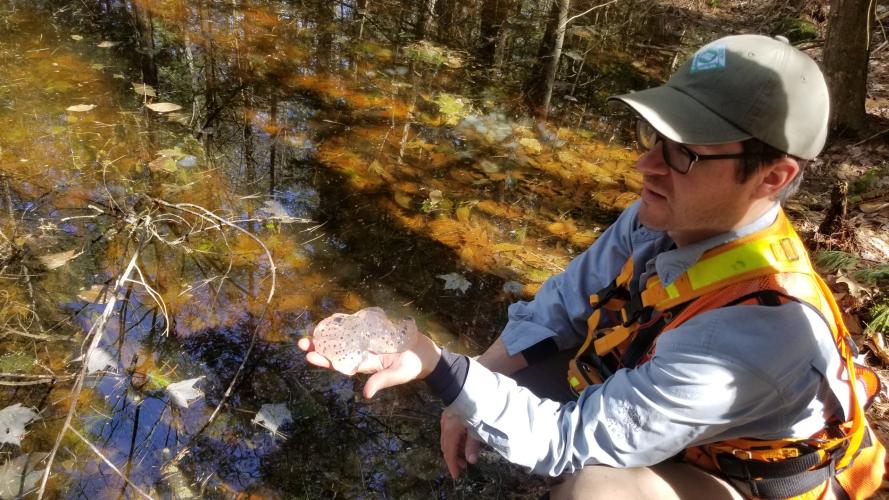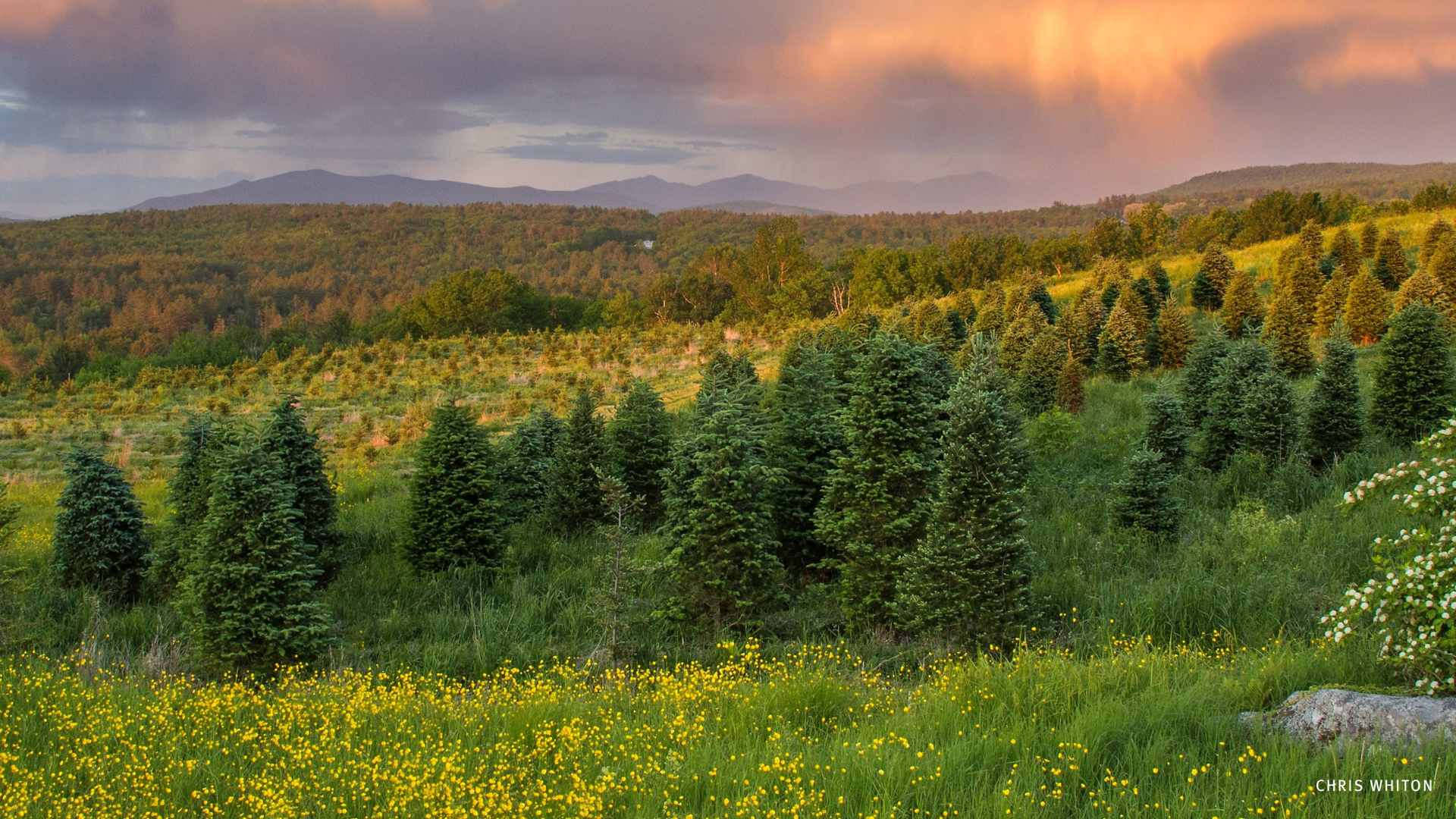
Field Forester Steve Junkin discovered these eggs in a vernal pool on Tebbetts Hill Reservation in Farmington in 2019.
With the warm wet weather and the onset of spring, this is one of the best times of the year to plan and lay out a timber harvest. The water table is high, and seasonal wet areas such as vernal pools are especially obvious at this time, allowing them to be carefully examined and mapped.
Vernal pools are now filling with water, and soon they will fill with breeding amphibians. During the first couple wet warm nights after the ground has thawed, salamanders and frogs migrate to vernal pools to lay eggs and breed. Vernal pools can be small, but play an extremely important role in our forest ecosystems, and merit protection during a timber harvest. The publication Good Forestry in the Granite State provides voluntary best management practices for practicing forestry in the areas surrounding a vernal pool.
To best protect vernal pools during a timber harvest:
- Mark the location of vernal pools in the spring when waters are highest
- Avoid running harvest machinery through the vernal pool basin
- Avoid adding slash to vernal pools
- Avoid removing tree crowns from directly over the vernal pool to maintain water temperature and nutrient inputs
- Locate permanent openings such as landings, roads, pastures, and fields as far as reasonably possible from vernal pools
- Within 200 feet of a vernal pool, limit tree removal to individual trees or small groups of trees
- Nearby vernal pools, retain small trees and/or shrub cover to help maintain some shade
- Nearby vernal pools, retain as much dead and downed woody material, stumps, stones, and leaf litter as possible
- Avoid creating ruts nearby a vernal pool, especially those which would alter its hydrology
- When possible, schedule harvesting that nearby vernal pools during frozen ground or dry summer conditions
A careful, well-planned timber harvest can be compatible with maintaining healthy vernal pools on our landscape!
To read more about vernal pools, check out our blog post from a few years ago and watch a vifdeo from Senior Director of Education Dave Anderson.
